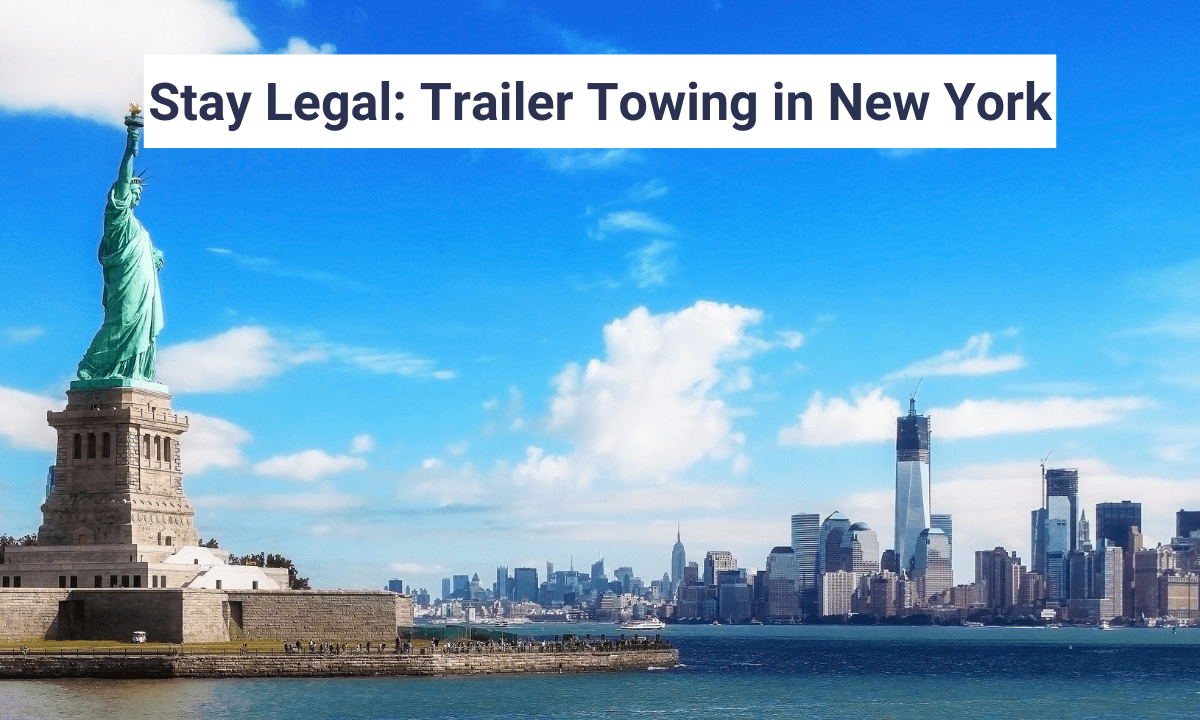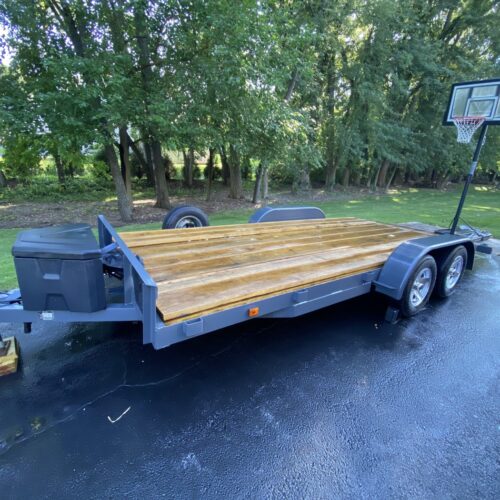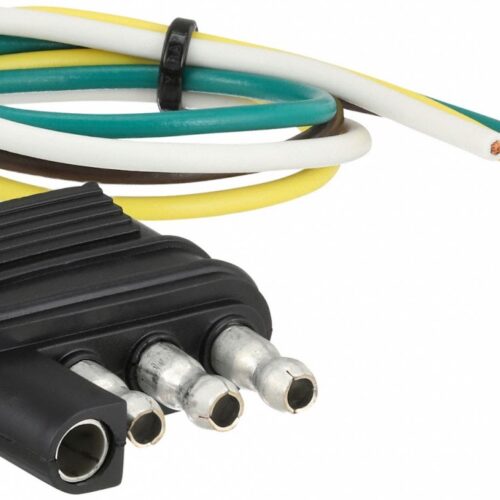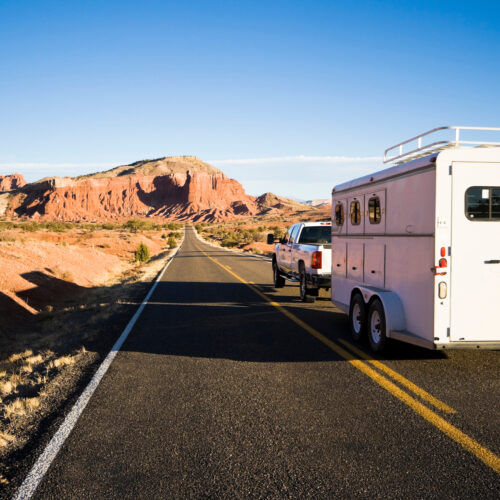knowing New York’s trailer towing laws comes with specific legal requirements to ensure safety on the road. Whether you’re a resident or just passing through, understanding these regulations is crucial. Here’s an in-depth look at the key laws you need to follow when towing a trailer in New York.

New York’s Trailer Towing Laws:
1. Trailer Registration and Inspection
In New York, all trailers must be registered with the Department of Motor Vehicles (DMV). Registration requires proof of ownership and payment of applicable fees. Trailers weighing over 1,000 pounds must undergo an annual safety inspection, covering aspects like lights, brakes, tires, and the hitch.
2. Brake Requirements
New York law has specific brake requirements based on the weight of the trailer. Every trailer and semitrailer weighing more than 1,000 pounds unladen, and every trailer and semitrailer manufactured on or after January 1, 1971, with a registered maximum gross weight or actual gross weight of more than 3,000 pounds, must be equipped with adequate brakes in good working order. These brakes ensure the trailer can be stopped effectively, reducing the risk of accidents.
3. Weight Limits and Gross Vehicle Weight Rating (GVWR)
It’s essential to know the Gross Vehicle Weight Rating (GVWR) of both your tow vehicle and trailer to avoid overloading. New York enforces strict weight limits, and exceeding these can result in severe penalties and increased safety risks.
4. Lighting and Reflectors
Proper lighting is vital for visibility when towing a trailer. All trailers must have functional tail lights, brake lights, and turn signals that are clearly visible. Additionally, trailers must have reflectors on the rear and sides, ensuring visibility from all angles, especially in low-light conditions.
5. Safety Chains
Safety chains are required by law in New York. These chains must be used in conjunction with the regular hitch or coupling, serving as a backup connection between the trailer and tow vehicle. Crossing the chains under the hitch creates a cradle that can support the trailer tongue if it becomes disconnected.
6. Speed Limits
When towing a trailer, always adhere to New York’s speed limits. The general speed limit on highways is 55 mph, but towing may require slower speeds depending on the load and road conditions. Exercising caution and reducing speed when necessary is key to maintaining control.
7. Lane Restrictions
Vehicles towing trailers are restricted from using the left-most lane on highways with three or more lanes in New York. This helps ensure that slower-moving vehicles stay out of the fast lane, reducing the risk of accidents.
8. Overhang Limits
In New York, loads extending beyond the rear of the trailer must be properly marked. If the overhang exceeds four feet, it must be marked with a red or orange flag during the day and a red light at night. This ensures that other drivers are aware of the extended load and can maintain a safe distance.
9. Double Towing
New York generally does not permit double towing, where a second trailer attaches behind the first. The state restricts you to towing one trailer at a time to keep tow vehicles manageable and safe on the road.
10. Parking and Stopping
When parking or stopping your trailer on a public road, make sure it does not obstruct traffic. New York law mandates that you park trailers in a way that avoids posing a hazard to other vehicles. Always use parking brakes and wheel chocks to keep the trailer from rolling.
Conclusion
Adhering to New York’s trailer towing laws is essential for a safe and trouble-free experience. By following these regulations, you avoid fines and penalties while contributing to road safety. Before setting out, register your trailer properly, equip it with the necessary safety features, and comply with state laws. Safe towing!




